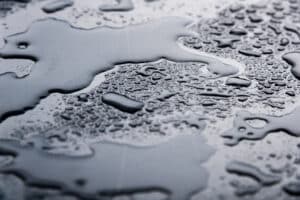Difference Between Hard Water and Soft Water
You have probably heard people describe water as either hard or soft. You may have even noticed that your soap and shampoo seem to work better when you are visiting relatives than when you are at your Whitehall home. The following information will help you understand the difference between hard and soft water and how it affects you and your Whitehall home.
Hard vs. Soft Water:
The difference between hard and soft water boils down to minerals. Soft water, such as rain, is free of minerals and only contains sodium ions.
Once the water hits the ground, it picks up various minerals such as calcium, magnesium, and lime as it passes through layers of rock.
Slightly hard water is often preferred for drinking since it contains essential minerals. Soft water typically tastes too salty, which often makes it unpalatable for drinking. Softer water is preferred for many household tasks such as bathing, laundry, and washing dishes.
The mineral content in hard water can prevent soaps from lathering, make clothes appear dingy, and leave spots on windows and glassware. Over time, the minerals in hard water can even make your appliances run less efficiently.
Signs You Have Hard Water:
- White spots on glasses and dishes
- Excessive soap scum on sinks, tubs, and bathroom fixtures
- Lack of lather from soaps and detergents
- White mineral deposits inside kettles and coffee pots
- Hair looks dull, and skin feels dry due to soap residue
The Solution:
Home remedies, such as soaps formulated for hard water and distilled vinegar to remove white spots on dishes, can provide temporary fixes for hard water problems. The only long-term solution to hard water is to eliminate part of the mineral content.
Unfortunately, many traditional water softeners use salt to remove the minerals. This causes the sodium content of the water to increase, which can affect the taste and cause health issues for individuals requiring a low-sodium diet.
Water softeners are now available that use processes such as reverse osmosis, deionization, and distillation to improve the quality of water without the health and environmental effects of salt.
The right water softening system can provide you with better tasting water and even improve the efficiency and lifespan of your appliances. A qualified professional plumber can recommend and install the right water softening system for your home.
Knowing the differences between hard & soft water in your Whitehall, PA home is important. For more info, call Schuler Service at (610) 991-7098 today!








